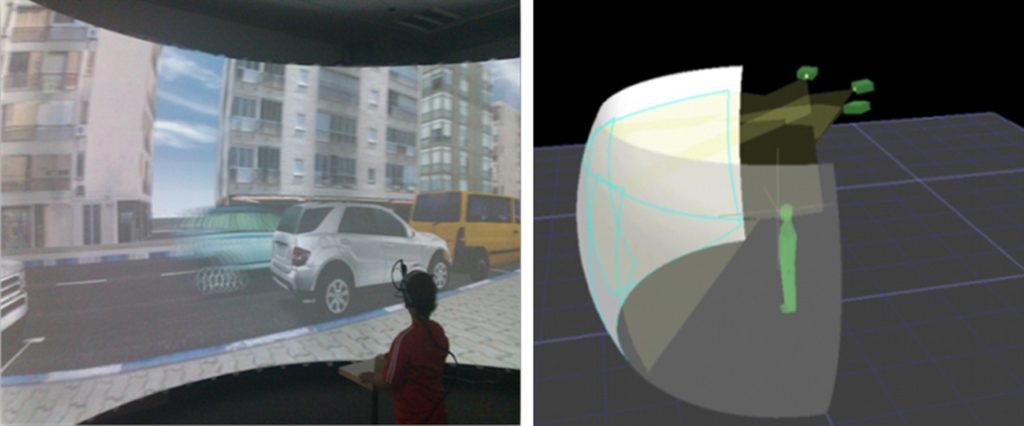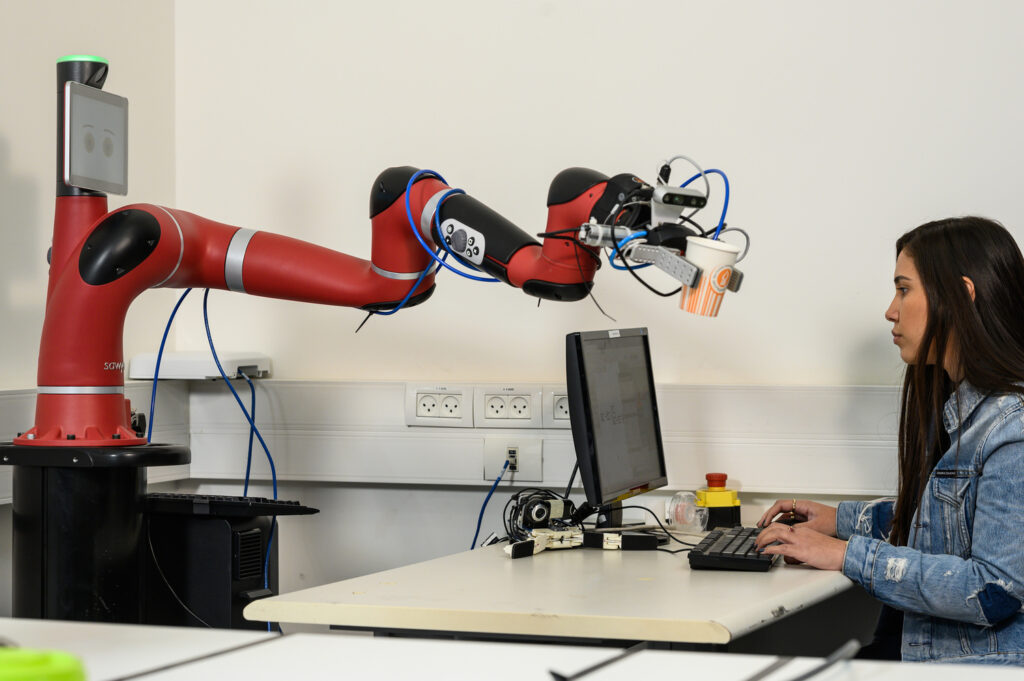
Children on Cell Phones in Danger Crossing the Street
Children on Cell Phones in Danger Crossing the Street
August 29, 2016
Press Releases, Robotics & High-Tech
Researchers at Ben-Gurion University of the Negev (BGU) have determined that a child pedestrian’s ability to safely cross the road is hindered more during a cell phone conversation than an adult’s. The study will be published in the November 2016 issue of Safety Science (Elsevier).
“Although many children carry cell phones, the effect that cell phone conversations have on children’s crossing behavior has not been thoroughly examined,” explains Prof. Tal Oron-Gilad, a researcher in the BGU Department of Industrial Engineering and Management.
“Over a third of the road traffic deaths in low- and middle-income countries are among pedestrians. This high level of involvement is particularly meaningful for child pedestrians as the proportion of child pedestrian fatalities is significantly high relative to adults,” she adds.
The study was conducted at the BGU Virtual Environment Simulation Laboratory, one of the world’s most sophisticated traffic research facilities, which enables researchers to measure pedestrian reactions to virtual reality scenarios. The pedestrian dome simulator consists of a 180-degree spherical screen aligned with a highly accurate three-projector system large enough to immerse a participant within its circumference.

Fig. 1. Dome projection facility and pedestrian simulator at the BGU ergonomics complex. Left: A child participant viewing the scenario on the Dome screen with the eye tracker strapped to his head. Right: A perspective of a participant facing the dome.
The simulator experiment was conducted in a virtual city environment with 14 adults and 38 children who experienced road crossing scenarios paired with pre-determined cell phone conversations. The subjects were requested to press a response button whenever they felt it was safe to cross while the researchers tracked their eye movements.
“The results showed that while all age groups’ crossing behaviors were affected by cell phone conversations, children were more susceptible to distraction,” says Prof. Oron-Gilad.
“When busy with more cognitively demanding conversation types, participants were slower to react to a crossing opportunity, chose smaller crossing gaps and allocated less visual attention to the peripheral regions of the scene.”
The ability to make better crossing decisions improved with age. The most prominent improvement was shown in the “safety gap;” each age group maintained a longer gap than the younger one preceding it.
“It is important to take those findings in account when aiming to train young pedestrians for road safety and increase public awareness with children going back to school,” Prof. Oron-Gilad says.
Cell phone conversations and child pedestrian’s crossing behavior, a simulator study. Hagai Tapiro, Tal Oron-Gilad, Yisrael Parmet Department of Industrial Engineering and Management, Ben-Gurion University of the Negev, Beer-Sheva, Israel. Tapiro, H., et al. Safety Sci. (2016). Safety Science 89:36-44. http://dx.doi.org/10.1016/j.ssci.2016.05.013.
ABOUT AMERICANS FOR BEN-GURION UNIVERSITY
By supporting a world-class academic institution that not only nurtures the Negev, but also shares its expertise locally and globally, Americans for Ben-Gurion University engages a community of Americans who are committed to improving the world. David Ben-Gurion envisioned that Israel’s future would be forged in the Negev. The cutting-edge research carried out at Ben-Gurion University drives that vision by sustaining a desert Silicon Valley, with the “Stanford of the Negev” at its center. The Americans for Ben-Gurion University movement supports a 21st century unifying vision for Israel by rallying around BGU’s remarkable work and role as an apolitical beacon of light in the Negev desert.
About Ben-Gurion University of the Negev
Ben-Gurion University of the Negev embraces the endless potential we have as individuals and as a commonality to adapt and to thrive in changing environments. Inspired by our location in the desert, we aim to discover, to create, and to develop solutions to dynamic challenges, to pose questions that have yet to be asked, and to push beyond the boundaries of the commonly accepted and possible.
We are proud to be a central force for inclusion, diversity and innovation in Israel, and we strive to extend the Negev’s potential and our entrepreneurial spirit throughout the world. For example, the multi-disciplinary School for Sustainability and Climate Change at BGU leverages over 50 years of expertise on living and thriving in the desert into scalable solutions for people everywhere.
BGU at a glance:
20,000 students | 800 senior faculty | 3 campuses | 6 faculties: humanities & social sciences, health sciences, engineering sciences, natural sciences, business & management, and desert research.
For all press inquiries, please contact:
James Fattal, J Cubed Communications
516.289.1496



